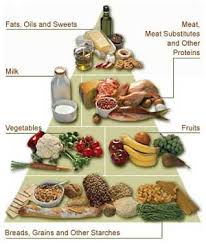The food you choose to eat, can be powerfully important for your overall health and well being.Your diet can make an enormous difference to cholesterol, blood pressure and blood glucose levels.
Some Interesting FACTS to help with Diabetic Meal Planning
 1. A good diabetic diet should be a balanced meal plan tailored to your needs, tastes, lifestyles and activity level while aiming to provide all the diabetic needs while keeping the blood sugar as near normal as possible.
1. A good diabetic diet should be a balanced meal plan tailored to your needs, tastes, lifestyles and activity level while aiming to provide all the diabetic needs while keeping the blood sugar as near normal as possible.3. Fat Facts! Fat doesn’t directly impact blood glucose levels, however if your meal does contain a large amount of fat, this can certainly cause the stomach to empty at a much slower rate and slow down the digestion of carbohydrates. Your blood glucose levels will stay higher for longer, which in turn makes it more difficult to keep your levels within the desired range.
4. When you are experiencing a Hypoglycemia episode, don’t treat that as a good excuse to just go eating your favorite sweet treats uncontrollably. This will cause your blood glucose levels to spike.
If you experience Hypoglycemia, it should be treated with approximately 15-20 g of carbohydrates (This would be for a reading of <4.9 mmol/L. Best to choose a fast acting carb – for instance jellied sweets, soda or juice.
5. Can I eat more protein, but cut down on carbohydrate? If you eat an excessive amount of anything, ie protein, you will also increase the level of fat that you consume and undoubtedly gain weight.
6. Diabetics should certainly eat fruits. Fruits are very good sources of fibre, antioxident vitamins and minerals, although they do contain carbohydrates. Aim for just 2 pieces of fresh fruit per day. (not canned)
Remember that a key objective of a diabetic diet is to reduce weight and keep it off, so a well planned diet is vital for the treatment of diabetes. Moreover, losing weight may not cure your diabetes, but will certainly help to control your levels which will improve your insulin resistance.
